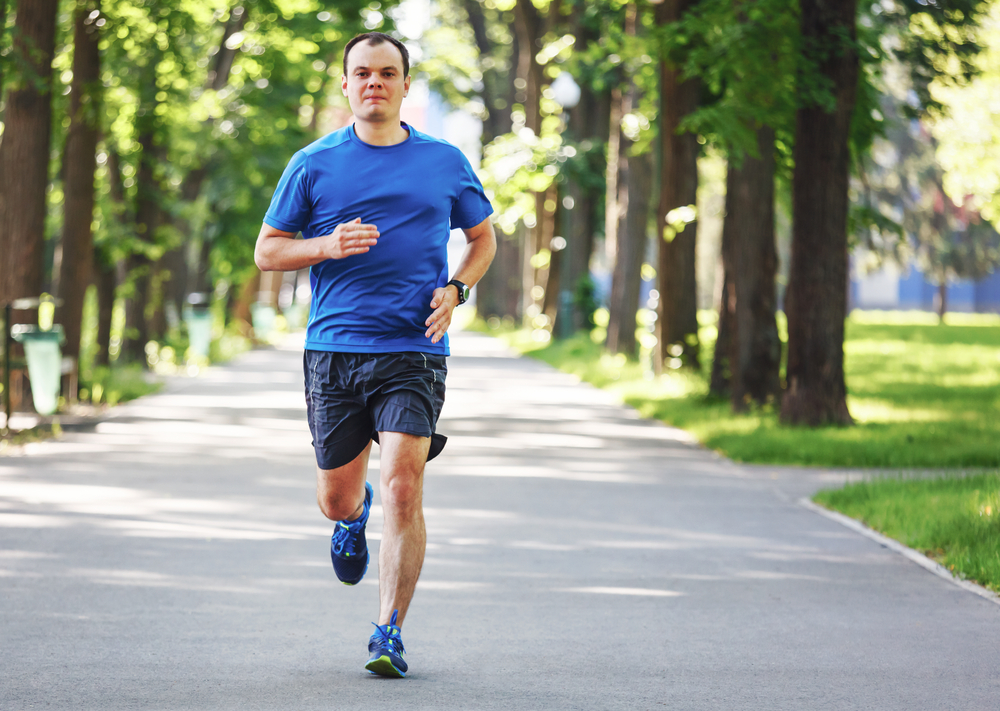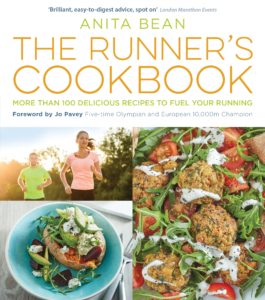

Updated 11th January 2019
One of the most common questions I get asked by runners is why they can’t lose weight despite running regularly. Some runners find that they actually gain weight; a phenomenon dubbed ‘marathon weight gain’. Although this may seem counterintuitive, it is also very frustrating for those aiming to lose weight. But there are a number of explanations, which may help you understand why you may not be losing weight.
Its all too easy to overestimate how many calories you’re burning running and overcompensate by eating too many calories. The truth is you may not be burning as many calories as you think. For example, if you weigh 60kg and run for 30 minutes three times a week, you’re burning 933 kcal. That’s equivalent to weight loss of less than 0.2kg, barely enough to register on the scales. You’ll need to create a deficit of 7,700 kcal to lose 1kg.
When you’re running regularly, it’s tempting to see a workout as a free pass to eat what you like, and easy to over consume treats. A couple of biscuits with your morning coffee? Another slice of cake? Why not – after all you just did a long run. But all those extra calories here and there can soon add up if you’re not mindful of your food intake. Unless you’re blessed with a fast metabolism or an ability to self-regulate your appetite, you may need to keep a more careful check on portion sizes and daily calories. If you want to lose weight running, you’ll need to consume fewer calories than you’re burning.
You may be very active while you run but do you then sit for long periods during the day? Many people may not be aware of it but, on days when they run, they tend to do less spontaneous activity, like walking or just getting up from their chair and moving around (known catchily as ‘non-exercise activity thermogenesis’ or NEAT). This means you could be burning fewer calories throughout the day, and so your overall daily burn may not be much different from what it was before you took up running. A study in 2015 found that people who exercised vigorously but sat most of the time were 1.65 times more likely to develop metabolic syndrome – type 2 diabetes, high blood pressure and obesity.
Do you consume too many sports nutrition products? Energy gels, bars and drinks contain a lot more calories than many people realise. A 500ml bottle of sports drink typically contains 140 calories; a gel 90 calories and a bar 200 calories. It’s easy to get sucked into the hype around these products but unless you’re exercising for longer than 90 minutes you don’t need extra carbohydrate during your run. You should have enough fuel (glycogen) in your muscles to keep you going to the end of your workout.
Here are 6 tips on how to avoid running weight gain
- Be realistic about how many calories you are burning during a run – activity trackers and heart-rate monitors can give you a reasonable idea (although, being based on predictive equations and standard algorithms, they are not super accurate).
- Be honest about your food intake – it can be helpful to log your food intake with an app such as MyFitness Pal (or just write everything down) for a few days.
- Sit less – Try to incorporate more movement into your daily routine and break up long periods of sitting with short walks or pacing while talking on the phone.
- Schedule your workout just before a main meal – this does away with the requirement for a post-run snack, and means you won’t be ravenous before your meal (leaving too long a gap can make you feel more hungry).
- Don’t reward your workout with unhealthy snacks– refuel instead with nutrient-rich foods like milk, yogurt, nuts, fruit and veg
- Save sports drinks, gels and bars for your long runs (more than 90 minutes)
In summary, running regularly has countless health benefits but, unless you also look at what you’re eating, it won’t automatically result in weight loss. It’s easy to overestimate your energy needs and overeat. If you want to lose weight running, you’ll need to consume fewer calories than you’re burning (about 10 – 15% less than before) and that means choosing nutrient-rich foods over calorie-dense snacks.
 If you enjoyed this post and want to find out more about sports nutrition, then check out my latest book, The Runner’s Cookbook. It features more than 100 delicious recipes to fuel your running. With a foreword from five-time Olympian Jo Pavey, the book also provides practical nutrition advice on fuelling before, during and after running, guidance on hydration and supplements, weight loss tips, how to recover from injury, and how to prepare for 5k, 10k, half marathons, marathons and ultra races.
If you enjoyed this post and want to find out more about sports nutrition, then check out my latest book, The Runner’s Cookbook. It features more than 100 delicious recipes to fuel your running. With a foreword from five-time Olympian Jo Pavey, the book also provides practical nutrition advice on fuelling before, during and after running, guidance on hydration and supplements, weight loss tips, how to recover from injury, and how to prepare for 5k, 10k, half marathons, marathons and ultra races.

